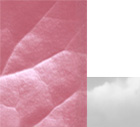|
|
Instruments
to support the substitution of biocides by alternative measures
|
| |
| |
|
Commissioned by:
Federal Environmental Agency, Berlin, Germany
|
| |
| |
Carried out by:
Stefan Gartiser, Hydrotox GmbH, Freiburg, Germany
Antonia Reihlen, Ökopol GmbH, Hamburg, Germany
Dr. Klaus Schneider, FoBIG GmbH, Freiburg, Germany
Horst Kremers, Berlin, Germany
|
| |
| |
|
Duration:
April 2005 - June 2006
|
| |
| |
| |
| Background |
| |
| On the 28th of June 2002, the German Biocides Law came
into effect. It regulates the implementation of the Biocide Directive
98/8/EG in the German Chemicals Legislation (ChemG). The latter prescribes
under Section §22, Paragraph 1a), Point 5 that the Licensing
Authorities for biocides shall make information available to the general
public on "physical, chemical and other measures as alternatives
to biocidal products or to minimize the use of biocidal products. |
| |
| In the framework of the present project, suggestions
for additional flanking measures toward the promotion of alternatives
to minimize the use of biocides are to be worked out. |
| |
| On the one hand it will be analysed, why
the alternatives to biocidal products sometimes don't sustain on the
market or why they are not sufficiently investigated yet. On the other
hand it will be examined with the help of case studies, which instruments
are most suitable to promote the application of alternatives. |
| |
| The importance of the information system (the feasibility
of its built-up has been analysed in the first part of the overall
project), will be of special consideration. |
| |
| |
| |
| Objectives and expected results |
| |
| The project consists of three phases: |
| |
| 1) Characterisation of different application
areas of biocidal products concerning the motivation and the "fears"
of the respective user groups to apply alternatives, concerning the
technical circumstances for the application of biocides and concerning
the regulatory scope, which might influence the application of biocides.
This characterisation will be worked out with the help of few indicators,
which however are relevant for all biocial products requiring authorisation
in Germany according to the biocides directive. |
| |
| 2) Evaluation of the characterisation of
application areas concerning similarities in: |
- The possibilities and limits of substitution of biocides
- The motivation, the concerns and the status of information of
the different players
- Further criteria relevant for the question.
|
| |
| With the help of the characterisation the
case studies for further processing will be selected. For these case
studies, the circumstances of a possible substitution will be researched
and documented. Different possibilities to support the application
of alternatives in the respective areas will be worked out. |
| |
| 3) Different measures for the support of
alternatives, as the creation of economic incentives, classification
and labelling, measures of policy law or education and information
campaigns will be discussed with different players in the framework
of workshops. The players will be representatives of the chosen case
study and will be from different working backgrounds, e.g.: from authorities,
from NGOs, from industry - applicants and producers of biocides and
of their alternatives. |
| |
| Die following results are expected: |
| |
- Overview on the present situation concerning the opportunities
and the motivation of biocides' users to apply alternative processes
- Overview on "typical" players' constellations and
"typical" circumstances for a substitution
- Documentation of 2 case studies for the detailed illustration
of possibilities for the support of alternatives.
|
| |
| |
| |
| Contact |
| Dirk Jepsen |
 |
| |
|






